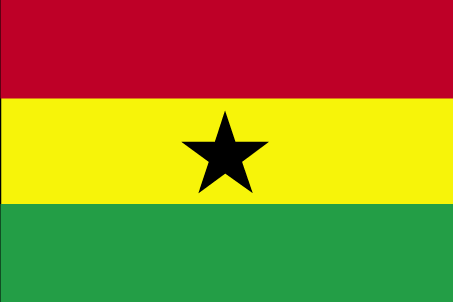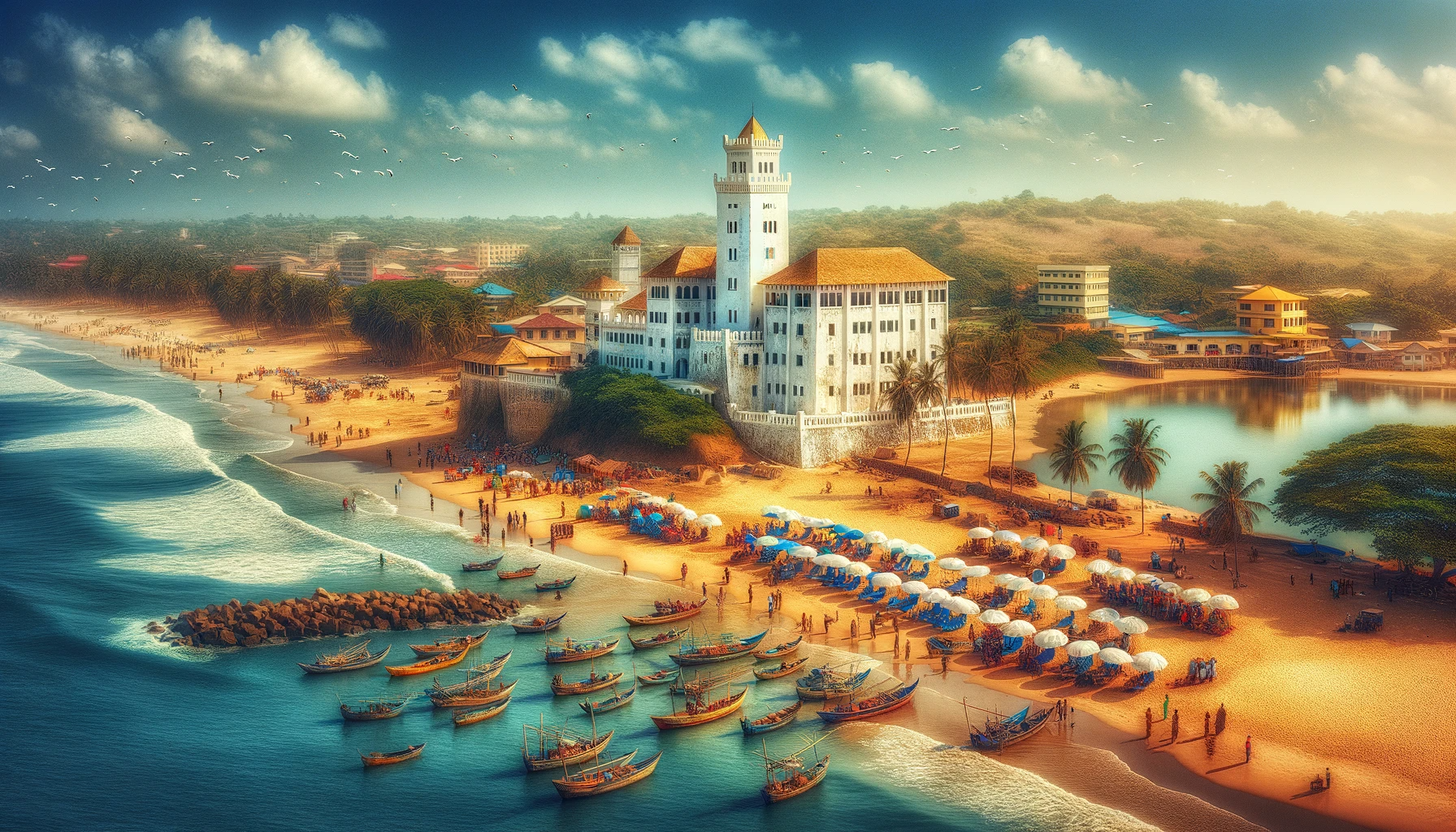Ghana, a nation on West Africa’s Gulf of Guinea, is known for its diverse wildlife, old forts, and secluded beaches. It’s a country rich in history, culture, and natural resources, with a population that’s known for its friendliness and hospitality.
List of National and Public Holidays in Ghana for the year 2025
- New Year’s Day is on Wednesday, 1st January.
- Constitution Day is on Tuesday, 7th January.
- Independence Day is on Thursday, 6th March.
- Eid al-Fitr is on Monday, 31st March*.
- Good Friday is on Friday, 18th April.
- Easter Monday is on Monday, 21st April.
- May Day/Workers’ Day is on Thursday, 1st May.
- Eid al-Adha is on Saturday, 7th June*.
- Founders’ Day is on Monday, 4th August.
- Kwame Nkrumah Memorial Day is on Sunday, 21st September.
- Farmers’ Day is on Friday, 5th December.
- Christmas Day is on Thursday, 25th December.
- Boxing Day is on Friday, 26th December.
*Please note that the dates for Eid al-Fitr and Eid al-Adha are approximate and may vary slightly based on the lunar calendar.
List of National and Public Holidays in Ghana for the year 2024
- New Year’s Day: January 01, Monday, 2024
- Independence Day: March 06, Wednesday, 2024
- Good Friday: March 29, Friday, 2024
- Easter Monday: April 01, Monday, 2024
- May Day: May 01, Wednesday, 2024
- Africa Day: May 25, Saturday, 2024
- Republic Day: July 01, Monday, 2024
- Founder’s Day: August 04, Sunday, 2024
- Kwame Nkrumah Memorial Day: September 21, Saturday, 2024
- Farmers’ Day: December 06, Friday, 2024
- Christmas Day: December 25, Wednesday, 2024
- Boxing Day: December 26, Thursday, 2024
Important Facts about Ghana

Here’s a detailed summary of some of the most important facts about Ghana:
Geography and Environment
Ghana is bordered by Côte d’Ivoire to the west, Burkina Faso to the north, Togo to the east, and the Atlantic Ocean to the south. It spans an area of approximately 238,535 square kilometers, making it slightly smaller than Oregon in the United States. The country is characterized by a variety of landscapes, from coastal savannahs to tropical rain forests.
History
Ghana holds a significant place in African history, as it was the first country in sub-Saharan Africa to gain independence from colonial rule in 1957. This event was a pivotal moment in the continent’s history, inspiring a wave of independence movements across Africa. Before independence, Ghana was known as the Gold Coast due to its abundant gold resources. The country’s history is also marked by the tragic transatlantic slave trade, with many forts and castles along the coast serving as reminders of this period.
Politics and Government
Ghana is a constitutional democracy with a president who serves as both the head of state and government. The country has been recognized for its stable political environment in a region that has seen considerable turmoil. Since moving to a multi-party system in the early 1990s, Ghana has experienced several peaceful transitions of power, which is a testament to its democratic principles.
Economy
Ghana’s economy is diverse, with agriculture, mining, manufacturing, and services sectors. It’s one of the world’s largest cocoa producers and is rich in minerals, particularly gold, which is a major export. The discovery of oil off the coast in 2007 has boosted the country’s economic prospects, though challenges remain, including managing the resource effectively and ensuring benefits are distributed widely among the population.
Culture
Ghanaian culture is a vibrant mix of traditional and modern influences. The country is home to over 100 different ethnic groups, each with its own unique language and culture. Music and dance are integral parts of Ghanaian life, with traditional drumming and dance forms such as Highlife and Afrobeats being popular. Kente cloth, a type of silk and cotton fabric made of interwoven cloth strips, is also a significant cultural symbol.
Language
While English is the official language and used in government and education, Ghana is linguistically diverse, with over 250 languages and dialects spoken. Akan languages, including Twi, are the most widely spoken. Other major languages include Ewe, Ga, and Dagbani.
Religion
Ghana is religiously diverse, with Christianity, Islam, and traditional African religions being the most practiced. Religious tolerance is high, with people often participating in each other’s religious ceremonies and celebrations.
Education and Health
Ghana has made significant strides in education, with a policy of free compulsory education up to the junior high level. However, challenges remain in ensuring quality and access, particularly in rural areas. In health, while there have been improvements in healthcare delivery and access, the country continues to face issues such as infectious diseases, maternal mortality, and a shortage of medical professionals.
Natural Resources and Environment
Ghana’s natural resources include gold, diamonds, bauxite, and manganese. The country also has significant agricultural potential, with fertile soils and a conducive climate. However, environmental challenges such as deforestation, illegal mining, and pollution threaten its natural heritage.
Tourism
Ghana is increasingly becoming a popular tourist destination, known for its friendly people, historical sites, and beautiful natural landscapes. Key attractions include the Cape Coast Castle, Kakum National Park, and Lake Volta, the largest manmade lake in the world by surface area. The country’s cultural festivals, such as the colorful Ashanti festivals, also draw visitors.
Challenges and Future Prospects
While Ghana has made significant progress, it faces challenges such as political corruption, economic inequality, and infrastructural deficits. The government is working on various initiatives to address these issues, including investing in infrastructure, education, and healthcare.
The country’s future prospects look promising, with a young, growing population and an increasing focus on technology and innovation. Ghana aims to become a regional leader in ICT and has seen a burgeoning startup scene.
Conclusion
Ghana is a country of rich cultural heritage, natural beauty, and significant historical importance. It’s known for its political stability and democratic values in a region often plagued by instability. While challenges remain, the country’s diverse economy, vibrant culture, and ongoing development initiatives position it as a key player in West Africa’s future. As Ghana continues to grow and evolve, it remains a symbol of African resilience and potential.

